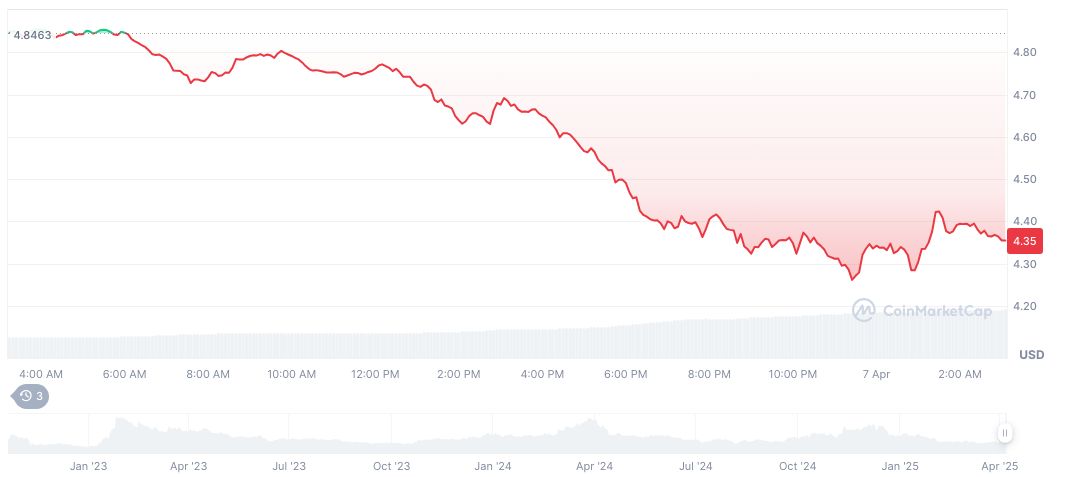- EU imposes tariffs on U.S. imports; potential trade shifts ahead.
- Major impact on steel, aluminum, and automobile sectors.
- Aptos token unlock may affect crypto liquidity.
On April 15, the European Commission will initiate tariffs on U.S. imports, escalating existing trade tensions due to earlier U.S. tariffs on European goods.
This escalation potentially influences supply chains and multinational trade policies, propelling negotiations and market adjustments.
EU Tariffs on U.S. Begin April 15: Economic Impact Assessed
The European Commission announced its decision to implement tariffs on U.S. imports in two stages, starting April 15 and continuing in May. Key decisions stem from existing U.S. tariffs on European steel and aluminum.
These measures aim to protect European industries while encouraging U.S. negotiations. The impact will be felt across various sectors, questioning trade balance sustainability.
Ursula von der Leyen, President of the European Commission, remarked, “this is a significant turning point for the U.S., but emphasized that the EU remains open to negotiations.” This underscores the seriousness of this economic shift and highlights the EU’s expressed willingness for dialogue, signaling potential pathways to resolution.
Historical Tariff Patterns and Aptos Market Dynamics
Did you know? Trade tariffs between the U.S., EU, and other global powers have historically led to economic downturns, shifting import-export dynamics and often impacting those outside the involved regions.
Aptos (APT) is trading at $4.41 with a market cap of $2.67 billion as reported on April 7, 2025, by CoinMarketCap. Facing a 0.50% rise in the last 24 hours, Aptos declined 54.57% over 90 days, amidst fluctuating market dominance of 0.11%.

Insights from Coincu’s research team highlight financial risks tied to tariffs, emphasizing historical patterns where economic strain has encouraged regulatory realignments for better trade relations and technological investments.
Coinbase derivatives crypto futures trading could be impacted as market adaptations occur.























